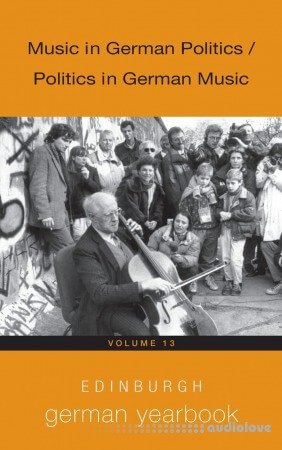Edinburgh German Yearbook 13: Music in German Politics / Politics in German Music

A particularly iconic image of German Reunification is that of Mstislav Rostropovich playing from J. S. Bach's cello suites in front of the Berlin Wall on November 11, 1989. Thirty years on, it is timely to reconsider the cross-fertilization of music and politics within the German-speaking context. Frequently employed as a motivational force, a propaganda tool, or even a weapon, music can imbue a sense of identity and belonging, triggering both comforting and disturbing memories. Playing a key role in the formation of and "Germanness," it serves ideological, nationalistic, and propagandistic purposes conveying political messages and swaying public opinion.
This volume brings together essays by historians, literary scholars, and musicologists on topics concerning the increasing politicization of music, especially since the nineteenth century. They cover a broad spectrum of genres, musicians, and thinkers, discussing the interplay of music and politics in "classical" and popular music: from the rediscovery and repurposing of Martin Luther in nineteenth-century Germany to the exploitation of music during the Third Reich, from the performative politics of German punk and pop music to the influence of the events of 1988/89 on operatic productions in the former GDR - up to the relevance of Ernst Bloch in our contemporary post-truth society.
Contents
Introduction: Music and/as Politics in the German Context
Part I. Appropriations and Misappropriations
Martin Luther in Nineteenth-Century Music, Literature, and Politics
The 1848 Revolutionary Lyrics of Hoffmann von Fallersleben, Herwegh, and Freiligrath in the German Folk Song Movement
"Der Kampf geht weiter": The Politics of Cover Versions in German Punk Rock
Son of Kraut and an Old Herero? The Politics of German Pop Musical Memory around 1990
Part II. The Political : Opera and Film
: Opera as Political Defiance
"Volk eilt herzu": Beethoven's Opera in Dresden on October 7 and 8, 1989, and Its Ambivalent Afterlife
Soundtracks of the Holocaust in East and West German Cinema: (1974) and (1977)
Part III. The Uses and Abuses of Music and PoliticsPolitical Ideology, Authentic Performance, and the Romantic Metaphysics of Music: The Case of the Pianist Elly Ney
The Spirits of Utopia and of Disenchantment: Ernst Bloch, Hope, and Music in the Age of Post-Truth
Notes on the Contributors
Home page
DOWNLOAD
